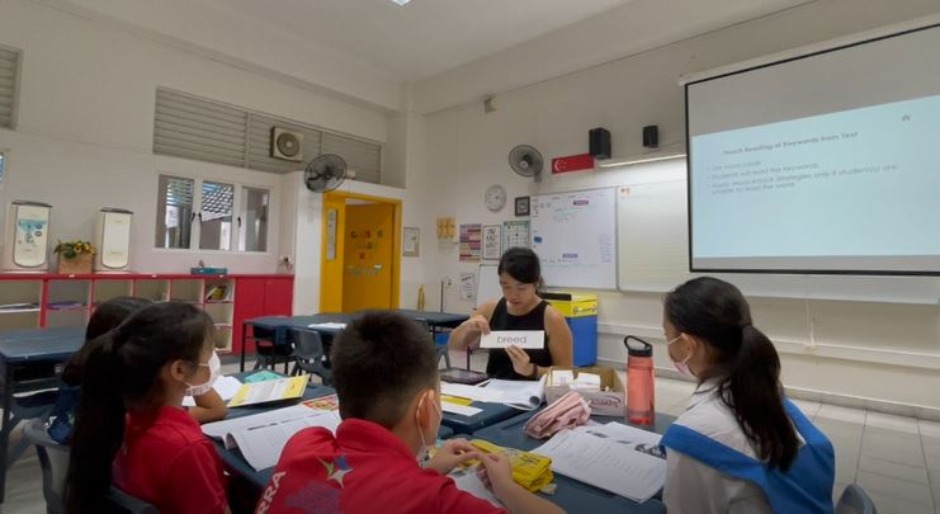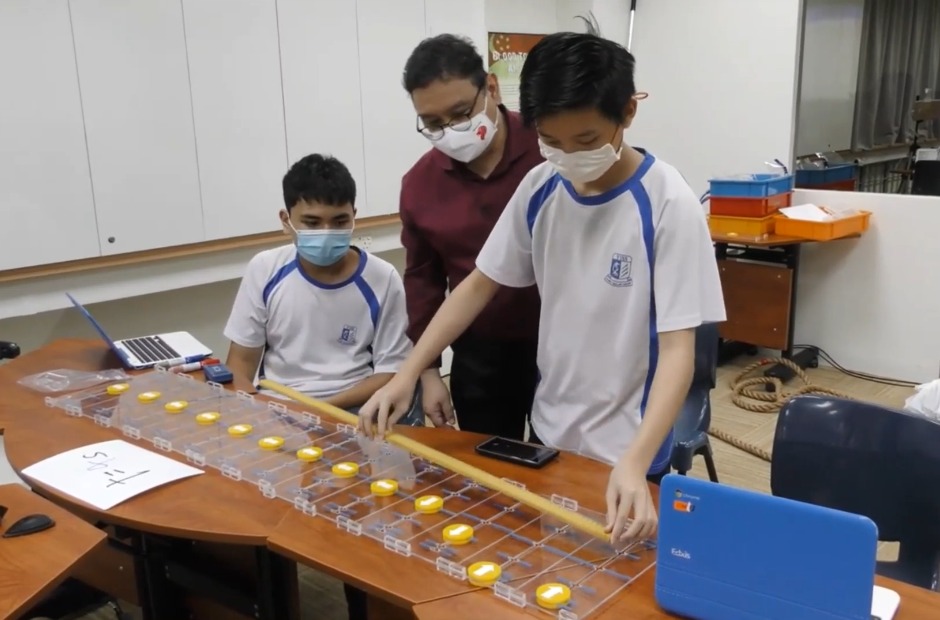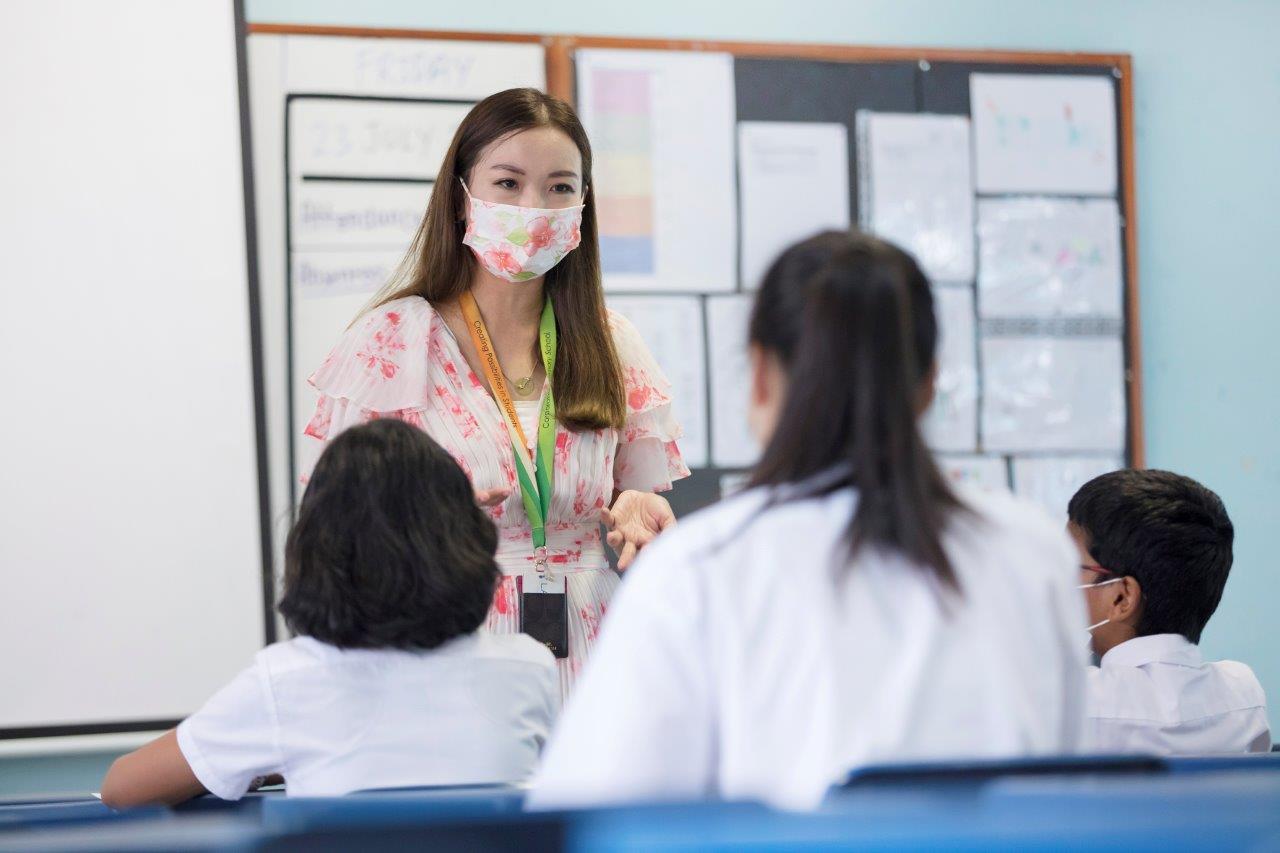Enabling Special Needs Children to Fulfil their Potential
21 Nov 2012

Senior Parliamentary Secretary (SPS) for Ministry of Education and Ministry of Communications and Information, Ms Sim Ann explaining the support for special needs in schools.
How and when do we assess children for dyscalculia (a math learning disability)? What can we do to help them? These were some questions raised at the Dyslexia Association of Singapore (DAS) Maths Learning Differences and Dyscalculia Conference 2012 held on Saturday, 17 November 2012. Experts presented and discussed research, to help teachers and parents better support children with such learning difficulties.
“We want every student, regardless of their abilities, to be an engaged learner who is motivated, enjoys learning, and fulfils his or her potential,” says Ms Sim Ann, Senior Parliamentary Secretary (SPS) for Ministry of Education (MOE) and Ministry of Communications and Information (MCI), during her speech at the Conference.
Dyslexia and Dyscalculia
In the last five years, there has been a growing awareness of learning difficulties, such as dyslexia and dyscalculia. While these conditions are not directly related to intelligence, they do hinder the learning process of a child.
For example, children with dyslexia struggle more with learning to read, write and spell, which are basic skill-sets for acquiring knowledge in other areas. Other associated problems such as a short attention span and difficulty remembering instructions could also hamper the child.
Those with dyscalculia have difficulties understanding basic number concepts and following a clear strategy for solving arithmetic problems. This, like dyslexia, is a neurological condition that can be tested, and should not be confused with a child’s weakness in math or a dislike of the subject.
Early Assessment and Intervention
One main recommendation at the conference was for early assessment and intervention, so that a child’s development can be guided and monitored.
In our schools, systematic screening is carried out in Primary 1. Children identified to be facing learning disabilities attend the Learning Support Programme (LSP) for English Language Literacy and Learning Support for Mathematics (LSM).
The objective of the LSP is to equip pupils with basic literacy skills so that they can access learning in a regular classroom. Pupils attend half hour sessions daily, in groups of eight to ten pupils. This continues in Primary 2 for pupils who need it.
To aid those with mathematical difficulties, LSM focuses on developing foundational numeracy skills and knowledge. Pupils attend between four to eight sessions a week with a LSM teacher.
Early intervention has been shown to be useful, say attendees of the conference, Michael and Shelley Siow, parents of five children. They had seen a marked difference in the development of their 12 year old son, who was diagnosed with dyslexia early and underwent LSP, as compared to their 23 year old son, who was only diagnosed before entering the army, and hence, did not receive any differentiated support.
Special Needs Education Training for Teachers
The need for teachers in our schools to be trained in special needs education was another key aspect highlighted by experts at the conference.
All trainee teachers undergo a compulsory core module on special needs, “Teaching and Managing Diverse Learners”, at NIE. This module aims to raise teachers’ awareness and to equip them with an understanding of supporting students with special needs and learning differences.
A selection of teachers in primary and secondary schools also undergo the Teachers Trained in Special Needs (TSN) programme, which is a 108-hour certificate level training. Most TSNs are deployed as form teachers or subject teachers of students with special needs to better cater to their needs, such as giving modified instruction. TSNs are also involved in building the capacity of their fellow teachers through sharing sessions or workshops on special needs issues.
To assist these teachers, there is at least one Allied Educator (AED) (Learning & Behavioural Support) in every primary school and 51 secondary schools. AEDs provide in-class support, conduct individual or small group interventions and conduct school-based training, amongst other responsibilities.
Some children taking remedial lessons may find that they still can’t cope, so an AED would help out patiently and give them support, says Mrs Siow, who commends the AEDs for their work and care.
Though their son will be graduating from primary school this year, Mr and Mrs Siow accept his limitations, and are not too worried.
“As parents, we want to discover something they are good at and push them towards that direction. If we can do that, I think we have done our best,” says Mr Siow, who hopes that his children can live life happy and satisfied.







